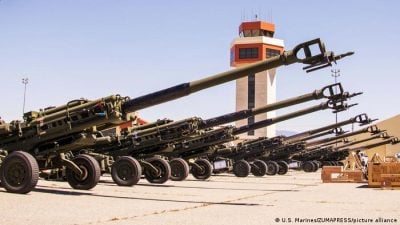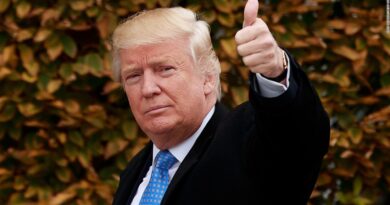Who Stopped the War in Ukraine?

All Global Research articles can be read in 51 languages by activating the Translate Website button below the author’s name.
To receive Global Research’s Daily Newsletter (selected articles), click here.
Follow us on Instagram and Twitter and subscribe to our Telegram Channel. Feel free to repost and share widely Global Research articles.
***
Up until now, the heated question has been about who is responsible for starting the war in Ukraine. Biden and the West call the war “unprovoked” and apportion all the blame to Russia; Putin and his partners say NATO expansion provoked the war and apportion all the blame to the US and NATO.
There is no doubt that the launching of a war without UN approval is illegal and that Russia bears responsibility for launching this war. But, eight months in, perhaps it is time to stop looking only at who started the war and start apportioning some of the blame to parties who are placing road blocks in the path of stopping the war.
Biden has said that he is “trying to figure out what is Putin’s off-ramp.” But we have passed several off-ramps. Though the person who drove the car up the on-ramp to the highway is responsible for driving on the highway, at some point, the person who drove passed multiple off-ramps also bears some responsibility for still being on the highway.
On October 9, former Joint Chiefs of Staff chairman Admiral Mike Mullen said in an interview that the U.S. needs to “do everything we possibly can to try to get to the table to resolve this thing.” Mullen then said that it “really is up to . . .Tony Blinken and other diplomats to figure out a way to get both Zelensky and Putin to the table.” He then added, “the sooner the better.”
But the Biden administration has declined to push them to the table. Just two days after Mullen’s comments, The Washington Post reported that “US officials . . . have ruled out the idea of pushing or even nudging Ukraine to the negotiating table.” The Post quotes a senior State Department official as saying that “That’s a decision for the Ukrainians to make.”
Turkey has recently suggested the possibility of mediating talks between Russia and the West. Russian Foreign Minister Sergei Lavrov responded that Russia would be open to that suggestion and “was willing to engage with the United States or with Turkey on ways to end the war.” State Department spokesperson Ned Price dismissed Russia’s comments as “posturing” and said Washington has “very little confidence” that Russia was making a legitimate offer. Perhaps he is right. But that is an off-ramp that, consistent with Mullen’s plea to “do everything we possibly can,” should be explored.
On October 5, Indian Prime Minister Narendra Modi told President Zelensky on the phone that India was prepared to mediate in peace efforts. That too is an off-ramp that could be explored. But there is no evidence that anyone has explored India’s offer.
These are not the first off-ramps that the West has driven pasts. In the early days of the war, Ned Price responded to suggestions for diplomacy during Russian attacks with the rejection that “those are not the conditions for real diplomacy.” One month later, Price again articulated a US rejection of negotiating an end to the war Russia had launched on Ukraine because “this is a war that is in many ways bigger than Russia, it’s bigger than Ukraine.” The State Department discouraged Kiev from negotiating on the key issues to end the war because there were “principles at stake here.”
In April, when a settlement seemed to be within reach at the Istanbul talks, then UK Prime Minister Boris Johnson rushed to Kiev to correct Zelensky, telling him that Putin “should be pressured, not negotiated with.” He told Zelensky that, even if Ukraine was ready to sign some agreements with Russia, the West was not.” On August 24, in his dying days as prime minister, he repeated that call, saying that now was not the time to promote a “flimsy plan for negotiation” with Russia.
After a month of the promising talks bearing no fruit, a frustrated Turkish Foreign Minister, Mevlut Cavusoglu, said in an interview that
“There are countries within NATO who want the war to continue.” He said that “following the NATO foreign ministers’ meeting, it was the impression that…there are those within the NATO member states that want the war to continue, let the war continue and Russia get weaker.”
On October 11, Russian Foreign Minister Sergey Lavrov claimed that “Should an offer for a meeting between Putin and Joe Biden no [sic] the sidelines of the G20 summit be filed, Moscow will review it.” On the same day, though, Biden said in a CNN interview that “I don’t see any rationale [sic] to meet with him now” and insisted that “I have no intention of meeting with him.” Biden then expanded the rejection of talks beyond the US, saying, “So I’m not about to, nor is anyone else prepared to, negotiate with Russia about them staying in Ukraine, keeping any part of Ukraine, et cetera.”
Recently, Moscow called on Kiev to return to the negotiating table. As Ned Price has said, this may just be “posturing.” On the other hand, as Admiral Mullen said, the US has to “do everything we possibly can to try to get to the table to resolve this thing.” If the US is “trying to figure out what is Putin’s off-ramp,” then they have to explore every off ramp.
As this horrible war reaches levels of danger unimagined at the start and risks elevating to levels that cannot be permitted, perhaps it is time to begin to apportion responsibility not only to those who started the war – a responsibility that cannot be shed – but also to those who refuse to stop it.
*
Note to readers: Please click the share buttons above or below. Follow us on Instagram and Twitter and subscribe to our Telegram Channel. Feel free to repost and share widely Global Research articles.
Ted Snider has a graduate degree in philosophy and writes on analyzing patterns in US foreign policy and history.
Featured image: Ukraine has began fielding US M777 howitzers to repel Russia
This article has been archived for your research. The original version from Global Research can be found here.


